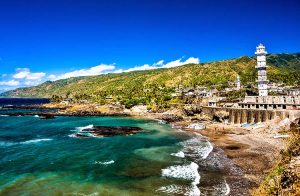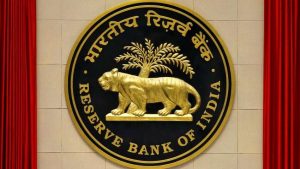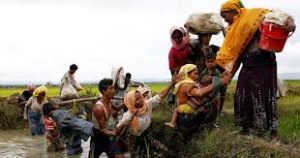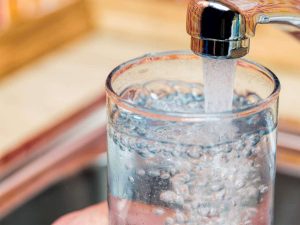Today Current Affairs: 15th March 2021 for UPSC IAS exams, State PSC exams, SSC CGL, State SSC, RRB, Railways, Banking Exam & IBPS, etc
Table of Contents
Index Monitoring Cell (IMC):

Pointing out that the right to dissent should be the central focus of press freedom, independent journalist P. Sainath struck a dissenting note in the report submitted by the Index Monitoring Cell (IMC).
- The Index Monitoring Cell (IMC) was set up by the Information and Broadcasting Ministry with stakeholders to improve India’s ranking in the World Press Freedom Index and to evolve an objective yardstick to gauge media freedom.
- The 15-member committee, which had four meetings between May and December last year, has four journalists and government functionaries.
- Chaired by Kuldeep Singh Dhatwalia, Principal Director General of the Press Information Bureau, the committee has 10 government employees.
Recommendations of report:
- Among the key recommendations is the decriminalising of defamation. India is one of the few countries in the world to criminalise defamation.
- The panel has also recommended that consent of the Press Council of India is a prerequisite before filing an FIR against the media or a publication.
- Sainath pointed out that the report failed in its objective to analyse the World Press Freedom Index (of Paris-based Reporters Without Borders or RSF), and India’s performance in it with a view to identify areas of strengths and concern related to press freedom in India.
The All India Council for Technical Education: Compulsory subject:

The All India Council for Technical Education (AICTE) — the technical education regulator — has made Physics, Chemistry and Mathematics (PCM) optional for students who wish to pursue technical courses like biotechnology, textile or agriculture engineering at the undergraduate level. However, PCM remains mandatory for most engineering subjects like computer science.
- The revised regulation is in line with the National Education Policy (NEP) vision that encourages flexibility in the choice of subjects.
As per the latest guidelines:
- Students only need to score 45% in any three subjects from a list of 14 in order to qualify.
- The universities will offer suitable bridge courses such as mathematics, physics, engineering drawing, etc for the students coming from diverse backgrounds to achieve the desired learning outcome of the program.
Commission For Air Quality Management Or CAQM:

Nearly five months after its setup, the central government’s “Commission for Air Quality Management” or CAQM in National Capital Region and its Adjoining Areas has been shut down due to lapsing of the ordinance.
- The Centre dissolved it after five months as the ordinance lapsed after failing to become an act
The erstwhile Environment Pollution (Prevention and Control) Authority or EPCA had been dissolved to make way for the Commission.
About the Commission for Air Quality Management (CAQM):
- The Commission for Air Quality Management was formed by an ordinance in October 2020, the “Commission for Air Quality Management (CAQM) in National Capital Region and Adjoining Areas Ordinance 2020”.
- Chairperson: To be chaired by a government official of the rank of Secretary or Chief Secretary.
- The Commission will be a statutory authority.
- The Commission will supersede bodies such as the central and state pollution control boards of Delhi, Punjab, Haryana, UP, and Rajasthan.
- It will have the power to issue directions to these state governments on issues pertaining to air pollution.
Panel For Studying The Mythical Sarasvati River:

The Centre has reconstituted an advisory committee to chalk out a plan for studying the mythical Sarasvati river for the next two years after the earlier panel’s term ended in 2019.
- The Archaeological Survey of India (ASI) on March 10 issued a notification for “reconstitution of the Advisory Committee for the Multidisciplinary Study of the River Sarasvati”.
- The ASI had first set up the committee on December 28, 2017, for a period of two years.
- The committee would continue to be chaired by the Culture Minister.
- It would include officials from the Culture, Tourism, Water Resources, Environment and Forest, Housing and Urban Affairs Ministries; representatives of the Indian Space Research Organisation; officials from the governments of Gujarat, Haryana, and Rajasthan; and an ASI official.
- The committee would review the work done by the previous panel and then formulate a plan.
- The committee would advise the Government Departments conducting research.
Lachit Borphukan:

Opposition parties in poll-bound Assam slammed Prime Minister Narendra Modi for referring to 17th-century Ahom general Lachit Borphukan as a freedom fighter.
- Lachit Borphukan (1622 – 1672) was a commander and Borphukan (Phu-Kon-Lung) in the Ahom kingdom, located in present-day Assam.
- He is known for his leadership in the 1671 Battle of Saraighat that thwarted a drawn-out attempt by Mughal forces under the command of Ramsingh I to take over Ahom kingdom.
- On 24 November each year, Lachit Divas (Lachit Day) is celebrated state-wide in Assam to commemorate the heroism of Lachit Borphukan and the victory of the Assamese army at the Battle of Saraighat.
- The best passing out cadet of the National Defence Academy has conferred the Lachit Borphukan gold medal every year from 1999.
Comoros:

Indian Navy Ship Jalashwa arrived at the port of Anjouan in Comoros with one thousand metric tonnes of rice. This highlights the exemplary ties between India and Comoros within the framework of PM Modi’s vision of SAGAR ( Security and Growth for all in the Indian Ocean Region).
- Comoros is an island country in the Indian Ocean.
- The Comoros is formed by Ngazidja (Grande Comore), Mwali (Mohéli) and Ndzuani (Anjouan), three major islands in the Comoros Archipelago, as well as many minor islets.
- The archipelago is situated in the Indian Ocean, in the Mozambique Channel, between the African coast (nearest to Mozambique and Tanzania) and Madagascar, with no land borders.
- Its capital and largest city are Moroni.
- As a member of the Arab League, it is the only country in the Arab world that is entirely in the Southern Hemisphere.
- It is also a member state of the African Union, the Organisation of Islamic Cooperation, and the Indian Ocean Commission.
Bank Credit And Deposits grew: RBI:

Recent data released by the Reserve Bank of India (RBI) showed that Bank credit and deposits grew and were higher in February 2021 than January 2021.
- The credit and deposits for February 2021 were even higher than the pre-pandemic data of February 2020.
Bank by RBI: At the end of February 2021:
- Bank credit grew by 6.63% to Rs.107.75 lakh crore which in February 2020 stood at Rs.101.05 lakh crore.
- Bank deposits grew by 12.06% to Rs.149.34 lakh crore which in February 2020 stood at Rs.133.26 lakh crore.
- Reason for Credit Growth:
- The growth in bank credit is driven by an increase in retail loans.
- Retail loans include a vast range of different loans. Personal loans such as car loans, mortgages, signature loans, and credit cards all fall into the category of retail loans, but business loans can also fall into the category of retail loans.
- The overall retail credit growth, which is currently at 9% is expected to accelerate further, led by mortgages (contributing 51%of retail loans) and back-end support by unsecured (cards/personal loans) and vehicle loans.
National Non-Ferrous Metal Scrap Recycling Framework, 2020:

The Ministry of Mines has issued a National non-ferrous metal scrap recycling framework, 2020 in a bid to cut down the scrap imports. It also seeks to use a life cycle management approach for better efficiency in the mineral value chain process.
Objectives of the Recycling Framework:
- To work towards economic wealth creation, job creation, and increased contribution to GDP through metal recycling.
- To promote a formal and well-organized recycling ecosystem by adopting energy-efficient processes.
- To minimize the effect of end-of-life products on landfills and environmental pollution by promoting an environmentally sound recycling system.
- To evolve a responsive ecosystem by involving all stakeholders.
Implementation Guidelines:
- The framework envisages the setting up a central Metal Recycling Authority to facilitate the recycling of metals.
- The government will work towards establishing standards for the Quality of scrap used for recycling.
- A mechanism for registration of segregation, dismantlers, recyclers, collection centers, etc. will be developed to promote recycling to an organized sector
- It is proposed to set up Urban Mines, envisaged as a location to collect and hold large quantities of similar materials.
- An Online market platform/ exchange platform for recycled/secondary metal will be developed.
- Recyclers may explore the possibility of entering into collection contracts with industrial and commercial establishments.
Illegal Influx From Myanmar Into India:

The Ministry of Home Affairs (MHA) has directed Nagaland, Manipur, Mizoram and Arunachal Pradesh to check illegal influx from Myanmar into India.
- The instructions have also been given to Border Guarding Force (BGF), i.e. Assam rifles.
- India already has a lot of Rohingya migrated from Myanmar.
- India, treats all refugees entering the country as illegal immigrants.
- In 2020, it was estimated that 40,000 Rohingya refugees lived in India, scattered across different states.
- The State governments have no powers to grant “refugee status to any foreigner” and India is not a signatory to the United Nations Refugee Convention of 1951 and its 1967 Protocol.
- Similar Instructions were Issued in August 2017 and February 2018.
- The directive comes weeks after the military coup and subsequent crackdown in Myanmar which led to several persons crossing over into India.
- The Tatmadaw, or Myanmar military, had taken over the country after a coup in February 2021.The
- North Eastern States readily provide shelter to people from across the border as some of the states have cultural ties with some border areas of Myanmar and many people have family relations as well. This had resulted in some states taking a sympathetic view of those fleeing Myanmar and giving them shelter.
- Already there are clashes among the tribes (example Bru), more refugees will further aggravate the situation.
- More than a dozen foreign nationals including policemen and women from Myanmar have fled to neighbouring Mizoram.
Framework For Water Quality Testing, Monitoring:

Jal Shakti Ministry launches a framework for water quality testing, monitoring.
- The framework is part of the Centre’s flagship Jal Jeevan Mission. Of the ₹3.6 lakh crore Jal Jeevan budget, 2% has been earmarked for quality monitoring.
- The guidelines mandate a network of the National Accreditation Board for Testing and Calibration Laboratories (NABL) accredited labs to be set up in every State, district and block over the next year.
- At the panchayat level, teams of women in the village water and sanitation committees will be given field testing kits.
- State governments can include private players as part of the network, but the Centre has capped tariffs to ensure that they remain within the reach of the common man.
- Apart from voluntary tests by members of the public, officials have been mandated to do regular inspections. All results of testing will be fed into the Water Quality Information Management System.
- The basic water quality parameters prescribed under the guidelines are:
- pH value, total dissolved solids, turbidity, chloride, total alkalinity, total hardness, sulphate, iron, total arsenic, fluoride, nitrate, total coliform bacteria, e.coil or thermo-tolerant coliform bacteria.
India’s Foreign Exchange Reserves:

India’s foreign exchange reserves now world’s fourth-largest:
- India’s foreign exchange reserves surpass Russia’s to become the world’s fourth-largest.
- India’s reserves, enough to cover roughly 18 months of imports, have been bolstered by a rare current-account surplus, rising inflows into the local stock market, and foreign direct investment.
- India’s foreign currency holdings fell by $4.3 billion to $580.3 billion as of March 5.
- China has the largest reserves, followed by Japan and Switzerland on the International Monetary Fund table




